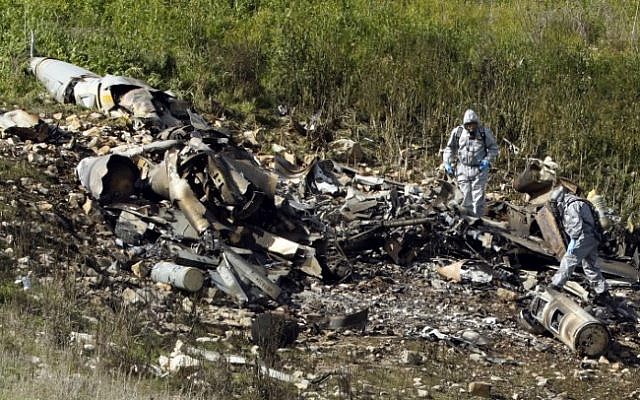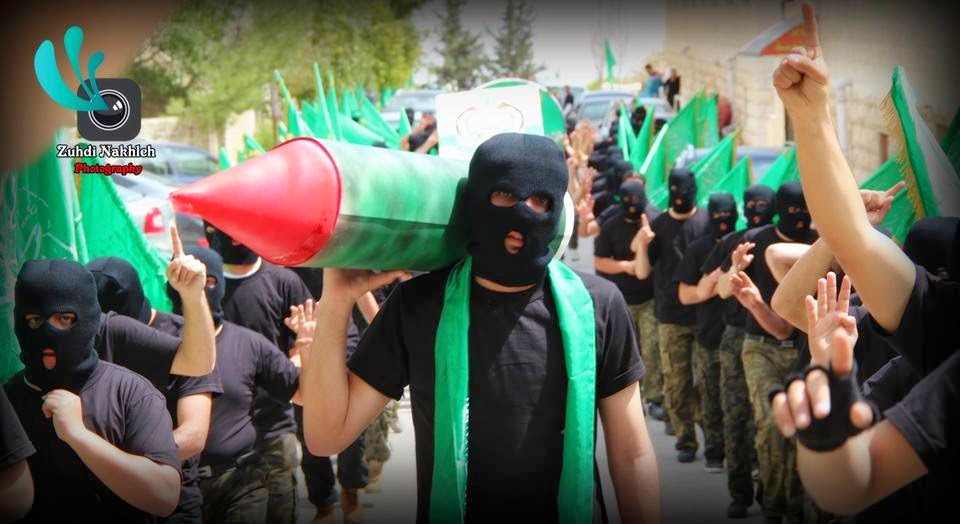IDF Blog: IDF intercepts Iranian UAV
On February 10, 2018, an Apache helicopter successfully intercepted an Iranian UAV that was launched from Syria and infiltrated Israel. The aircraft was identified by the Aerial Defense Systems early on and was under surveillance until the interception. In response, IDF attacked the Iranian aircraft's launch components in Syrian territory.Iranian UAV Intercepted by an Israeli Helicopter
Later, also in response to the Iranian UAV that was launched at Israeli territory and was intercepted by the IDF, Israeli Air Force (IAF) aircraft targeted 12 targets in Syria, including three aerial defense batteries and four Iranian targets that are part of Iran's military establishment in Syria.
During the attack, multiple anti-aircraft missiles were fired at IAF aircraft. The two pilots of an F-16 jet ejected from the aircraft as per procedure, one of whom was seriously injured and taken to the hospital for medical treatment.
“The Syrians and the Iranians, from our point of view, are playing with fire. The Syrians are playing with fire when they allow the Iranians to attack Israel from their soil. We are willing, prepared, and capable to exact a heavy price on anyone that attacks us. However, we are not looking to escalate the situation,” Lt. Col. Jonathan Conricus, Head of the International Media Desk.
The IDF sees the Iranian attack and the Syrian response as severe violations of Israeli sovereignty. The IDF will continue to act against any attempt to infiltrate Israeli airspace and will act with determination to prevent any breach of Israeli sovereignty.
Israel strikes Iranian targets in Syria, IAF pilots eject F-16
In a major flare up on Israel’s northern border, Israel carried out a large-scale attack against Syrian air defenses and Iranian targets in the war-torn country after an Israeli F-16 crashed during operations to strike Iranian targets in Syria early Saturday morning.Sirens, clashes in north after IDF shoots down infiltrating Iranian drone
The operation, which was carried out by eight Israeli jets struck 12 targets in Syria, including thee Syrian SA5 and SA17 air defense batteries and four Iranian targets.
According to Syrian media reports, Israel struck the Abu Al-Thaaleb airbase near the town of Kiswah, which is home to Syria’s 1st armored division and part of the Islamic Republic’s buildup in Syria.
The Israeli attack was met with anti-aircraft fire, triggering air raid sirens in the Golan Heights and upper Galilee, warning residents of potential rocket strikes. According to IDF Spokesman Brig.-Gen. Ronen Manelis, several missiles hit open areas in northern Israel.
“Iran and Syria are playing with fire,” he said. "The results of our strikes are not yet fully known to them (Iran), and they may be surprised when they discover what we targeted."
Early on Saturday morning, an Iranian drone, which was launched from a Syrian base in the Homs desert, was identified approaching Israeli airspace by the IDF around 4 a.m., setting off alarms across Golan Heights and the Jordan Valley. The drone entered Israel via Jordanian airspace and flew for a minute and a half before it was intercepted by an Israeli Air Force Apache helicopter near the town of Beit She’an.
“We waited for it to cross into our territory,” said IAF chief of air staff Brigadier General Tomer Bar who stressed that it was important for Israel “to get our hands on the drone that was operated by the Iranians.”
“It was the most extensive attack against Syrian anti-aircraft batteries carried out by the IAF since 1982,” Brig.-Gen. Bar stated, stressing that, nonetheless, “we consider this to be a fully successful operation. Israel’s air superiority was not affected today.”
Tensions have been rising along the northern border recently, as Israel has warned repeatedly against Iranian efforts to set up weapons production facilities in Lebanon and establish a presence near the Israeli border with Syria.
According to unconfirmed reports, Israel has carried out dozens of airstrikes on the Syrian armed forces and their allies since the civil war broke out there in 2011.
The prime minister and senior defense officials have said that the country takes action in Syria when a “red line” is crossed, generally meaning in retaliation to deliberate or accidental attacks on Israel from southern Syria or when advanced weapons are being transferred to the Iran-backed Hezbollah terrorist group.
There have, however, been reports of additional Israeli actions that do not appear to have been in response to a violated “red line,” including in attacks against suspected chemical weapons facilities.
Early Wednesday morning, according to Syrian reports, Israeli aircraft bombed a military scientific research facility outside Damascus, which is suspected of both developing chemical weapons for Assad and assisting Iran and Hezbollah in improving their missile technology.
Netanyahu has said that if Iran continues to try and entrench itself in Syria, Israel will “stop it.”










































